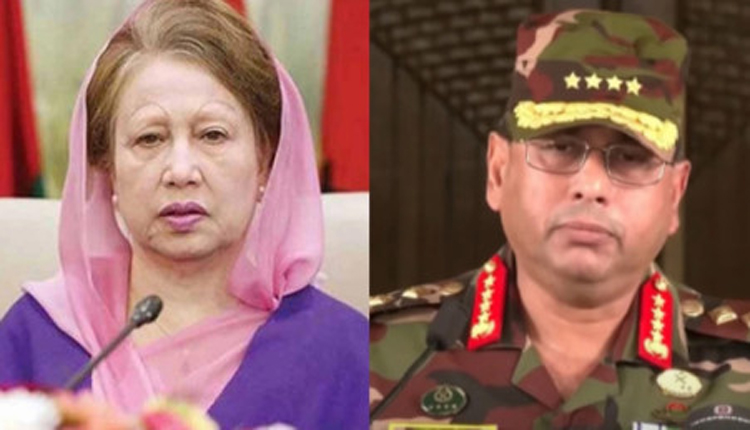Dhaka: After the ousting of former Prime Minister Sheikh Hasina’s government, Bangladesh finds itself under an interim administration led by Nobel laureate Muhammad Yunus. But this new administration has become the target of rising criticism both at home and abroad, reportedly due to the rampant violence perpetrated against the minority communities in the country. As per reports, militant groups like the Bangladesh Jamaat-e-Islami have started to prosper amid this political chaos.
The interim administration’s major coalition partner, ex-Prime Minister Khaleda Zia, is said to have voiced dissatisfaction with Yunus. Zia was the pivotal figure in establishing the current government, and her ongoing displeasure might complicate the role of Yunus even more.
It has come to light that Khaleda Zia attended a meeting with the Chief of Bangladesh Army General Waker-uz-Zaman at her residence in Gulshan Dhaka on Thursday night. In the context of the escalating tensions between Zia’s Bangladesh Nationalist Party (BNP) and Yunus’ provisional government, this meeting is being considered a notable one. Zia’s wife, Sarahnaz Kamalika Rahman, who is also a cousin of Sheikh Hasina, accompanied her.
General Waker expressed a wish for Zia’s early recovery through the meeting that day. The presence of Major General (Retd) Fazle Elahi Akbar, Zia’s security advisor, highlighted the importance of this discussion.
Yunus’s leadership has seen a rise in the animosity between BNP and the Jamaat-e-Islami. A few days ago, BNP’s Joint Secretary, Ruhul Kabir Rizvi, publicly nailed Jamaat’s part in the 1971 Liberation War, demanding a clear statement from them about the issues in question during that period. Rizvi charged the leaders of Jamaat with attempting to brand themselves as the exclusive “good political party” after the shift in power.
It has become known that BNP has been feeling grumpy about the Jamaat’s growing foothold in the interim government, particularly due to the appointment of Jamaat’s affiliates to key advisory positions and quarrels over the forthcoming elections. This is echoed in Risvi’s utterances. Historically, Jamaat leaders have been linked to the charge of having collaborated with the Pakistani army during the Liberation War, which today is a matter of serious concern about their political resurgence.
During the period when Sheikh Hasina was in power, a number of Jamaat members were charged with war crimes by international tribunals. Conversely, Hasina’s Awami League party has been traditionally labelled as the one that continues to be in line with the Liberation War narrative. Khaleda Zia’s husband, Ziaur Rahman, was one of the first Bengali officers who joined the fight against Pakistan.
The BNP has burdened the complaint that Yunus’s government is using various reasons to delay the national assembly elections, which are the real causes to maintain its power. Some experts argue that this chaotic situation may elevate the military’s role in governance once again. General Waker’s presence has been claimed as notable in dealing with the internal unrest after Hasina’s exit.
With the upsurge of tensions, local and foreign observers are closely tracking the developments in the country’s political field.



Comments are closed.